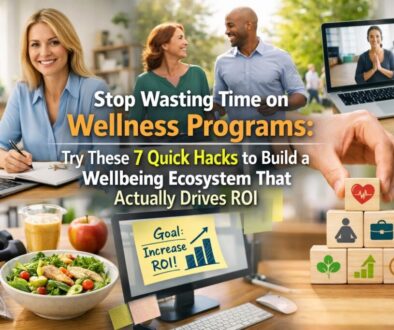A Hybrid Solution for Where We’ll Work

It’s been 367+ days since I have worked onsite at my organization. I’m sure there is an inch of dust on my desk and my calendar still reads March 2020.
A classic extravert, I thought I would struggle working from home missing the daily interactions in-person. To my surprise, I have acclimated to my home office and I enjoy working remotely. In addition to increasing my productivity, my stress level has decreased without a 3-hour roundtrip daily commute. I take an early morning online workout class during the time I would have been driving to work and my health and mental wellness have improved.
In my post pandemic dream scenario, I will continue to work from home the majority of the time and drive into the office for interactions that would benefit from the in-person experience. The key for me is flexibility and the option to work from home without feeling badly about working from home because of pre-pandemic stigmas.
Organizations around the world are designing re-entry plans and coming to terms with the reality that much of the workforce wants to have flexible options for remote work. Companies have learned that employees can be extremely productive while working remotely with the year-long (and ongoing) pandemic test to prove it.
Hybrid Solution
Most organizations are opting for a hybrid solution of remote and in-person work as we journey through the pandemic. This will cut down on overhead and travel costs and bring people together when necessary to enhance the work experience.
Veronica Combs wrote a great piece in TechRepublic about the new perks of remote work.
Combs said, “This means companies have to find new ways to create connections among employees. Leadership, culture and communication skills will all play a part in creating a new normal.”
Here are some things Combs identified as the new perks of remote work:
Flexible Work Hours – meeting fatigue is real, especially on Zoom and companies are starting to place a higher value on outcomes, rather than outputs. We realized in the pandemic lockdown that life happens while we work and taking care of real-life needs is often necessary during the traditional workday. Having the flexibility to tend to your life while also being productive at work can transform employee engagement and retention.
Support for Parents and Kids – it’s time to end the feelings of guilt by parents trying to work and raise children and the weaponizing of guilt towards parents with kids who are trying to work and raise children. The parental juggling act used to include transporting kids to school, nursing a sick child, or trying to make it home in time for the school play or sporting event. Now parents are also grappling with digital learning until schools reopen 100% and stress levels are high. Savvy companies are recognizing these difficulties and providing support and resources to help parents cope and continue to work. I believe the same support should be extended to those taking care of elderly parents.
Mental Health Benefits – mental wellness is key to work and personal success, so innovative companies are investing in resources that include therapy, coaches, and mental wellbeing programs to support the increase in pandemic related stress.
Grief Resources – each day the pandemic casualties increase, and the loss has been devastating. Many companies are hosting grief programs to acknowledge and support employees as they navigate the grief journey.
COVID Care-Kits – the CDC strongly encourages people to wear masks, even if vaccinated to sustain safe and healthy environments indoors. Many companies provide face masks, antibacterial wipes, and hand sanitizer to employees to use at work and at-home.
Home Office Needs – covering the cost of a home office with a computer, Internet, and ergonomic chair (for starters) is a return on investment in an employee creating a designated and productive place to work. Equipping employees with home office needs empowers them for success and satisfaction.
We have learned a lot in the last year and these lessons will certainly impact the world-of-work moving forward.
Lessons Learned
- Meetings don’t need to be an hour
- Working 8-hour shifts may not be the most productive
- The stigma that remote workers are less impactful has been shattered
- Work and life cannot be treated as two separate constructs
- FOMO – Fear of Missing Out is overrated
- The psychological impact of the pandemic is long lasting
As we continue towards what’s next in the pandemic journey, I hope the last twelve months have empowered individuals to ask for what they need to be productive, healthy, and engaged at work – no matter where that work happens.





